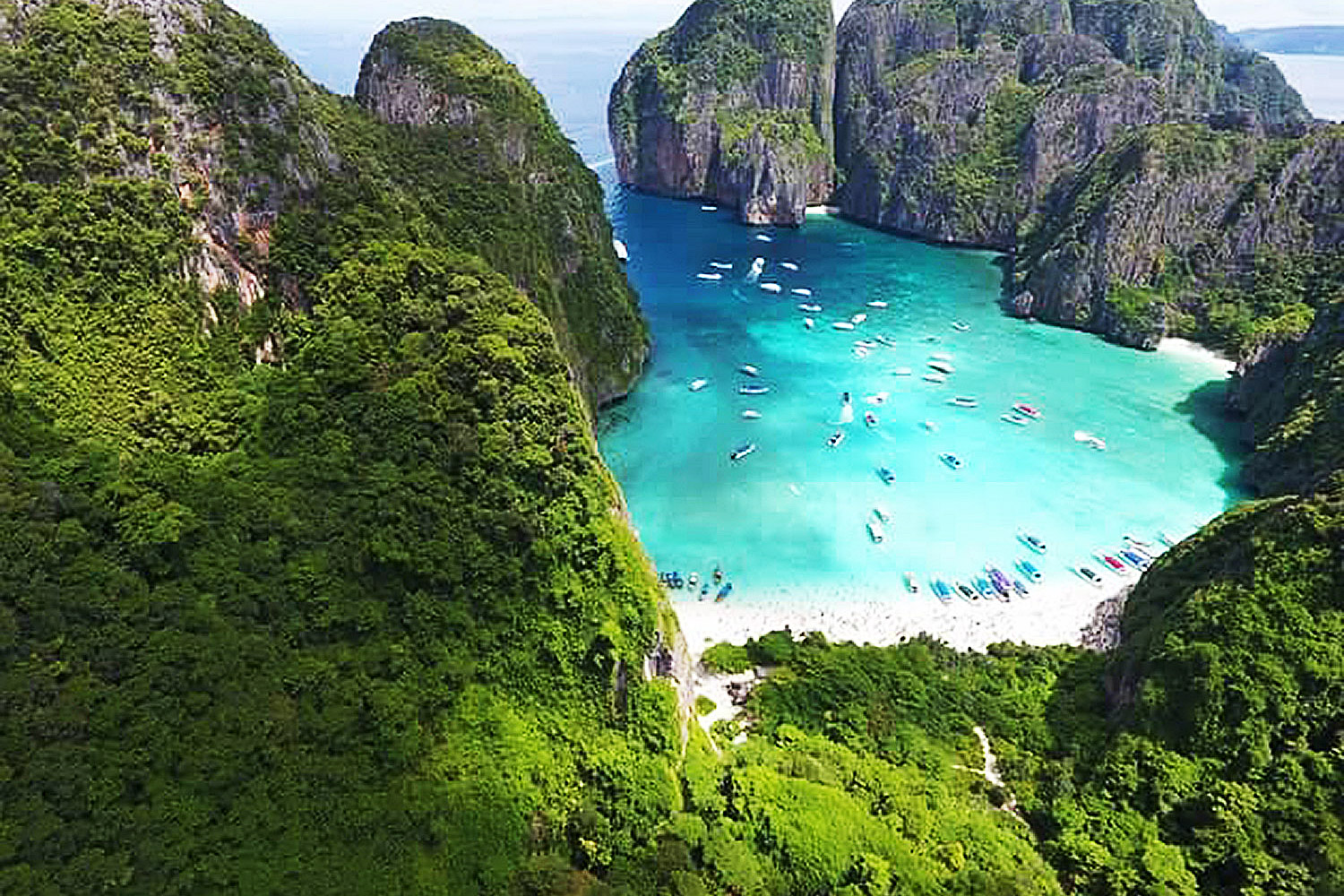
The Department of National Parks, Wildlife and Plant Conservation decided on Wednesday to extend the closure of world-famous Maya Bay for another two years. It is now due to reopen in the middle of 2021.
The decision was made after a trial closure that began on June 1 last year resulted in ecological recovery.
Other islands and beaches in the national park (Hat Noppharat Thara-Mu Koh Phi Phi) will remain open to tourists.
Maya Bay is just 250 metres long and 15m wide. Its popularity soared after the release 19 years ago of Hollywood flick The Beach, starring heartthrob Leonardo DiCaprio, as some scenes were filmed there. This resulted in 5,000 tourists turning up there a day at the peak of its fame.
Assistant Prof Thon Thamrongnawasawat, a Kasetsart University marine biologist and member of the national park's committee, said the closure extension was warranted because the department needs to not only protect the environment but also develop more facilities there including a walking board, a dock for tourist boats, toilets, and a residence for officials. An e-ticket system will also be put in place for when it reopens, he said.
Prof Thon said the number of daily visitors will be limited to 2,400 a day in peak season. Time limits are also likely to be put in place, he added.
An online booking system will be introduced with Hat Noppharat Thara-Mu Koh Phi Phi National Park to serve as a pilot project, he noted.
This aims to limit the number of visitors and reduce corruption, making sure all entry fees are fed into state coffers.
In another development, the Department of Marine and Coastal Resources found a dead female dugong on Koh Libong in Trang. The waters around the province are a known habitat of the marine mammal.
An initial autopsy showed the dugong died due to respiratory system failure, the department said.
There are around 210 dugong in the area, mostly off the coast of Trang in the Andaman.
The number is up from 169 in 2017.
The growing population is seen as a result of cooperation between officials and local communities, notably a ban of the use of destructive fishing gear in the animals' known habitats.